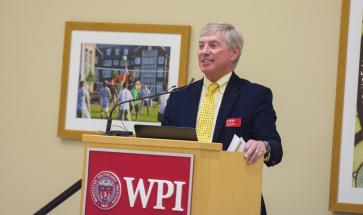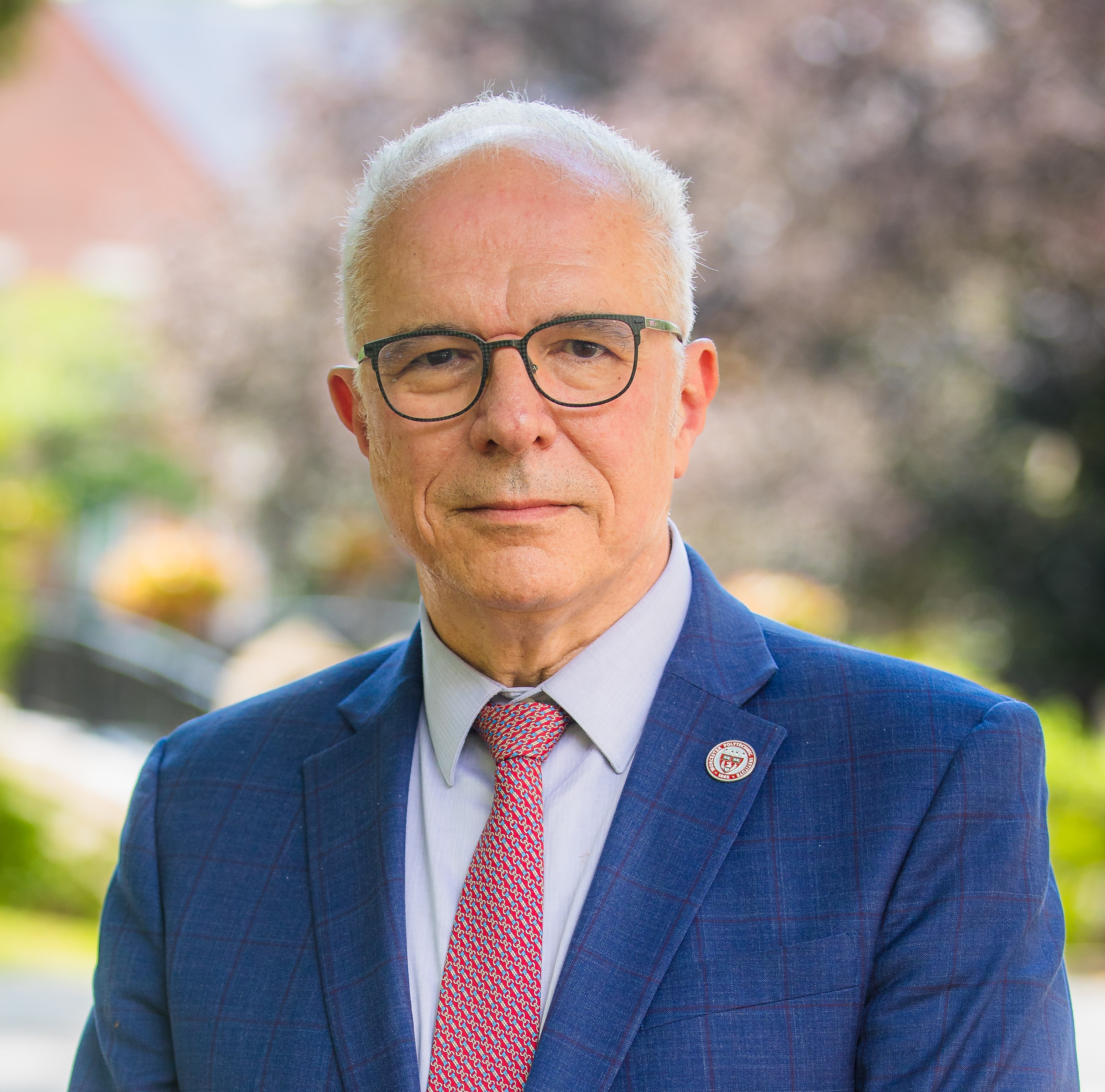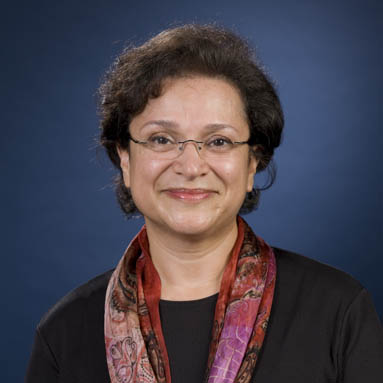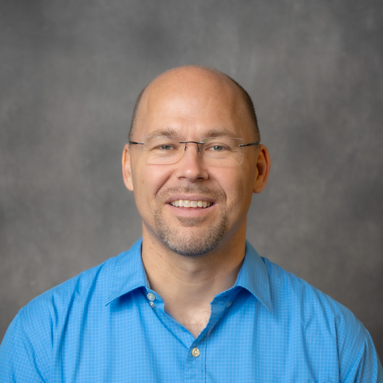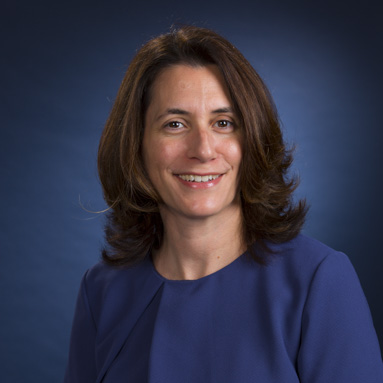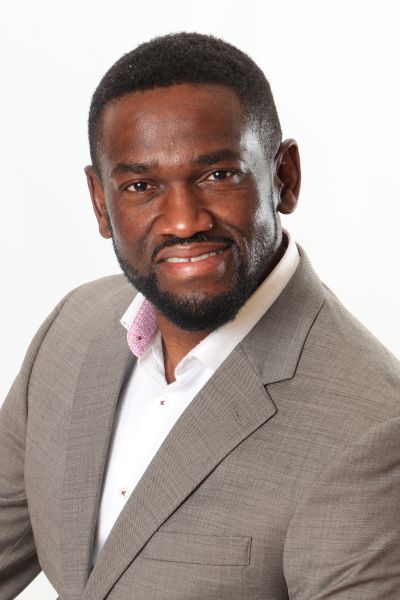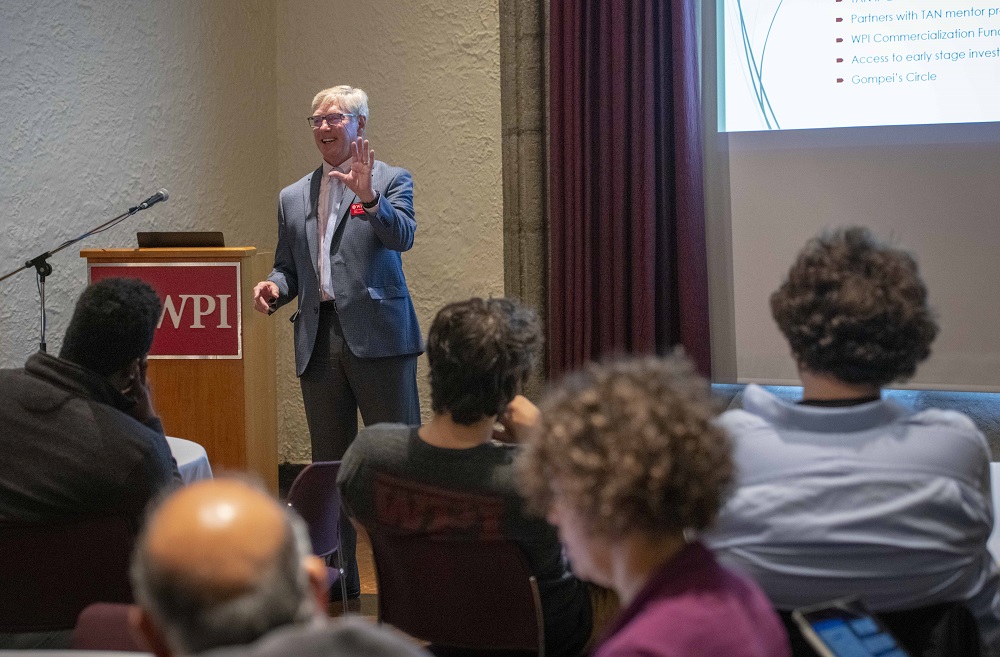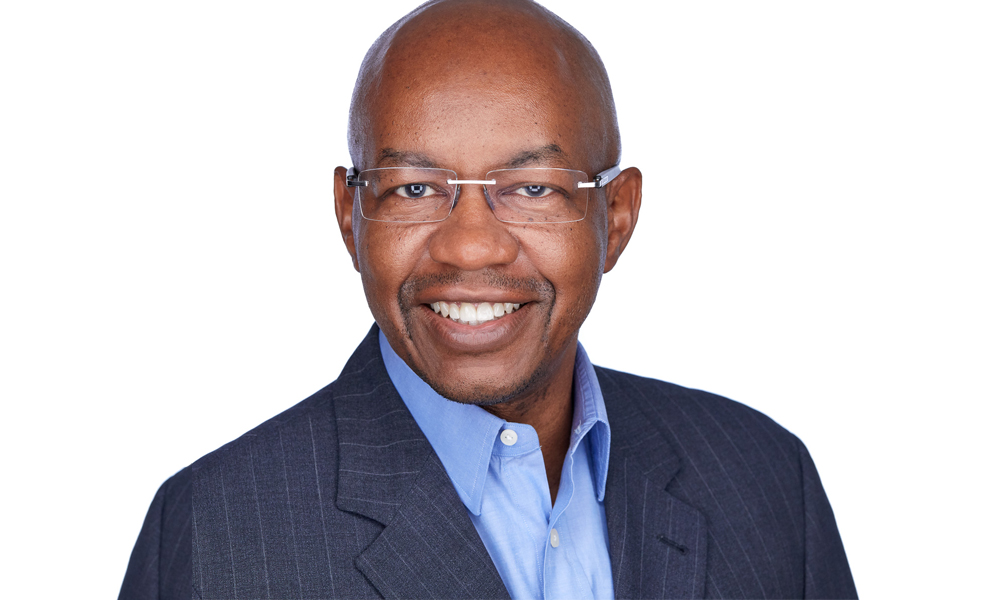It’s no news to the WPI community that its students and faculty regularly contribute to groundbreaking research, but outside entrepreneurs and investors recently had the opportunity to see firsthand the work being done by students and faculty, and potentially have a role in taking that work to the next level.
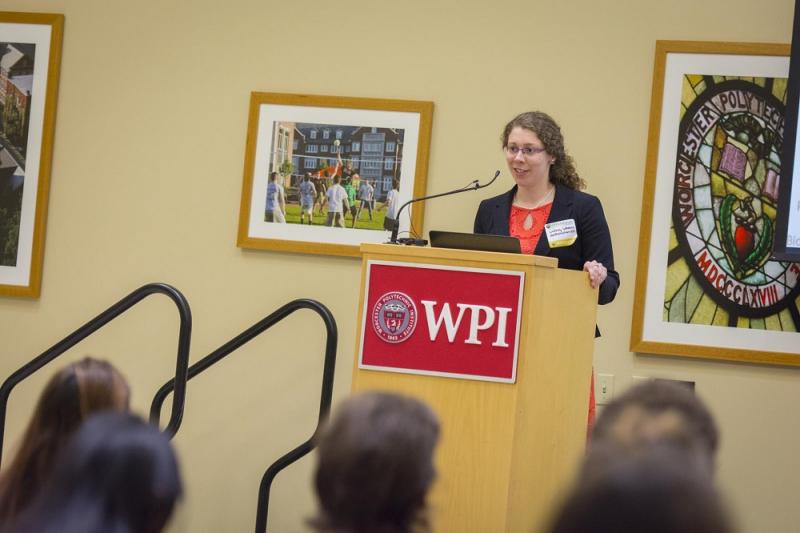
Graduate student Lindsay Lozeau addresses the crowd.
The Venture Forum, a nonprofit community for technology entrepreneurs, held its first Start-Up and Commercialization Opportunities event on February 28 in the Rubin Campus Center Odeum. Nine faculty members and two students (one undergraduate, one graduate) presented their research to nearly 100 entrepreneurs, investors, and company representatives in hopes of obtaining funding.
“There are lots of great research and products being developed at WPI, but a question we came across was how people outside the university knew what research we were doing,” says Todd Keiller, director of intellectual property and innovation. “We wanted to figure out a better way to commercialize the research WPI is doing, and find homes for these new innovations.”
To solve this problem, Keiller worked with vice provost for research Bogdan Vernescu to organize the night in collaboration with the Venture Forum. “Over the past five years, WPI has doubled its research funding, as well as the number of patents and start-ups,” Vernescu says, “but you can’t just have research patents and start-ups; you need funding, too, which is what we hope to offer here.”

Richard Eberheim ’17 explains his research.
The event began with a short opportunity to begin networking, then, over the course of the evening, each researcher was given three minutes to pitch an idea to the crowd. With ideas ranging from apps to prevent drunk driving to wearable embodied learning technologies, no two presentations were alike. The entrepreneurs and investors could then stop by the tables of any researchers whose work interested them to learn more, ask questions, or exchange contact information.
“It’s sort of like speed dating for start-ups,” Vernescu jokes.
While only two presentations were done by students, much of the research presented by faculty members—including arm orthoses and mechano-muscle maturation devices— began as part of MQPs over the years. The fact that WPI alumni were able to participate in research that’s now being considered for funding speaks volumes to the university’s commitment to project-based learning and giving students the opportunity to make an impact and help solve real problems.
For some participants, it was their first time with intellectual property to patent, while others were seasoned veterans. Regardless of experience level, each researcher successfully displayed WPI’s commitment to innovation, and paved the way for many more collaborations and licensing opportunities with local entrepreneurs.
The 11 ideas:
- AMProtection, antimicrobial coatings to prevent infections caused by medical devices, specifically catheters (Lindsay Lozeau, grad student)
- A cable-driven manipulator for additive manufacturing (Richard Eberheim ’17)
- Coated cell culture apparatus (Amy Peterson, Marsha Rolle)
- Mechano-muscle maturation device (Ray Page)
- Powered arm orthosis (Allen Hoffman)
- Artificial muscles, bones, and bio-inspired control (Marko Popovic)
- Wearable embodied learning technologies (Ivon Arroyo)
- Fixation identification using density optimization (Soussan Djamasbi, Andrew Trapp)
- Measurement equipment with outlier filter (Chris Brown)
- Habit App, a behavioral app to help users build new habits regarding diet and exercise (Bengisu Tulu)
- AlcoGait, a blood-alcohol content sensing system (Emmanuel Agu)
- By Allison Racicot
